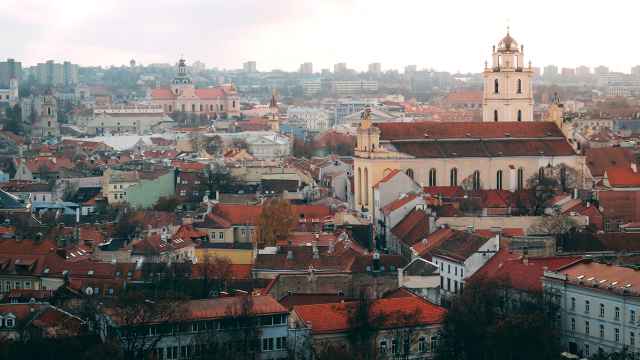Uralkali, the country’s largest potash miner by market value, officially launched a $7.8 billion friendly takeover of domestic rival Silvinit on Monday.
Pavel Grachev, Uralkali's chief executive, said in a statement that the merger is a “critical step toward the creation of a leader in the global potash sector.”
The combination of the two companies will create the world's second-largest producer of potash — a raw material used in fertilizers — after Canada's Potash Corporation of Saskatchewan.
Uralkali said that in line with Dec. 17 closing prices the market capitalization of the new company would be about $23.9 billion. Completion of the deal is expected in May, pending shareholder and regulatory approvals.
Shareholders will receive 133.4 Uralkali ordinary shares for each ordinary share in Silvinit and 51.8 Uralkali ordinary shares for each preferred Silvinit share. This values Silvinit shares at a 45 percent discount to Uralkali, Bob Kommers, an analyst at Deutsche Bank, told The Moscow Times.
“[Silvinit shareholders] will be very unhappy about the proposed merger terms,” Kommers said. Other analysts told The Moscow Times that approval is unlikely to be withheld.
Yevgeny Dorofeyev, an analyst at Petrocommerce Bank, agreed that Silvinit shareholders did not get the best deal, but said “both sides will win in the long term.”
Extraordinary shareholders meetings for both companies are scheduled for the first week of February. A 75 percent majority approval is necessary for the deal to go through, but it has already received binding approval from 53 percent of Uralkali and 67 percent of Silvinit shareholders.
The boards of directors of both companies are in favor of the merger.
Billionaire Suleiman Kerimov, along with his partners, acquired a controlling stake in Uralkali and Silvinit between June and August and have been seeking to merge the two ever since.
“The deal casts a negative light on the treatment of minority shareholders by Uralkali's new controlling shareholders, and this will translate into a valuation discount versus international peers,” Kommers said.
Uralkali shares declined 1.2 percent to 212.48 rubles at the close of trading in Moscow on Monday, while Silvinit closed down 13.2 percent at 27,330 rubles.
The merger will be effected through an acquisition by Uralkali of more than 1.5 million Silvinit ordinary shares, at $894.5 a share or $1.4 billion total cash value, from intermediate owner Otkritie Financial Corporation.
The remaining 80 percent of the deal value will be realized through the issuing of 1.2 billion new shares by Uralkali. The company currently has 2.1 billion shares outstanding.
The deal will be partially financed by Uralkali's sale of 50 billion rubles ($1.63 billion) worth of three-year exchange-traded bonds, according to a regulatory filing Monday.
Both companies have production facilities at the Verkhnekamskoye potash-magnesium field in the Urals, the world's second-largest deposit. Russia has 32.5 percent of the earth's proved potash resources.
The world’s potash producers have traditionally adhered to price-over-volume strategies to maintain profits. The eight largest producers have a global market share larger than OPEC has for oil, which is likely to result in a cautious approach from regulators.
An application to the Federal Anti-Monopoly Service for permission for the merger has not yet been made, Grachev said, but it will be filed this week and is expected to be approved.
But developing countries with shrinking amounts of arable land and rising populations, including India, China and Brazil, have little to gain from further consolidation in the potash industry.
Uralkali and Silvinit exported 84 percent of their combined sales in the first half of this year.
The deal will have to be approved by the governments of Poland, China, Brazil, the United States and India, as the share of combined Uralkali and Silvinit imports would exceed the maximum permitted market share, said Andrei Lobazov, an equity research analyst at Metropol.
BHP Billiton’s $40 billion hostile bid for Saskatchewan's PotashCorp failed in November after it was blocked by the Canadian government.
In November, Russia’s third-largest nitrogen-fertilizer maker Acron, wrote to Prime Minister Vladimir Putin complaining of Uralkali's decision to raise prices next year for local makers of complex fertilizers by more than 30 percent.
An Acron executive on the board of directors at Silvinit was the only member to vote against the decision.
“Fewer, larger players would mean that a common pricing and marketing strategy may now be easier to implement,” Lobazov said.
A Message from The Moscow Times:
Dear readers,
We are facing unprecedented challenges. Russia's Prosecutor General's Office has designated The Moscow Times as an "undesirable" organization, criminalizing our work and putting our staff at risk of prosecution. This follows our earlier unjust labeling as a "foreign agent."
These actions are direct attempts to silence independent journalism in Russia. The authorities claim our work "discredits the decisions of the Russian leadership." We see things differently: we strive to provide accurate, unbiased reporting on Russia.
We, the journalists of The Moscow Times, refuse to be silenced. But to continue our work, we need your help.
Your support, no matter how small, makes a world of difference. If you can, please support us monthly starting from just $2. It's quick to set up, and every contribution makes a significant impact.
By supporting The Moscow Times, you're defending open, independent journalism in the face of repression. Thank you for standing with us.
Remind me later.






